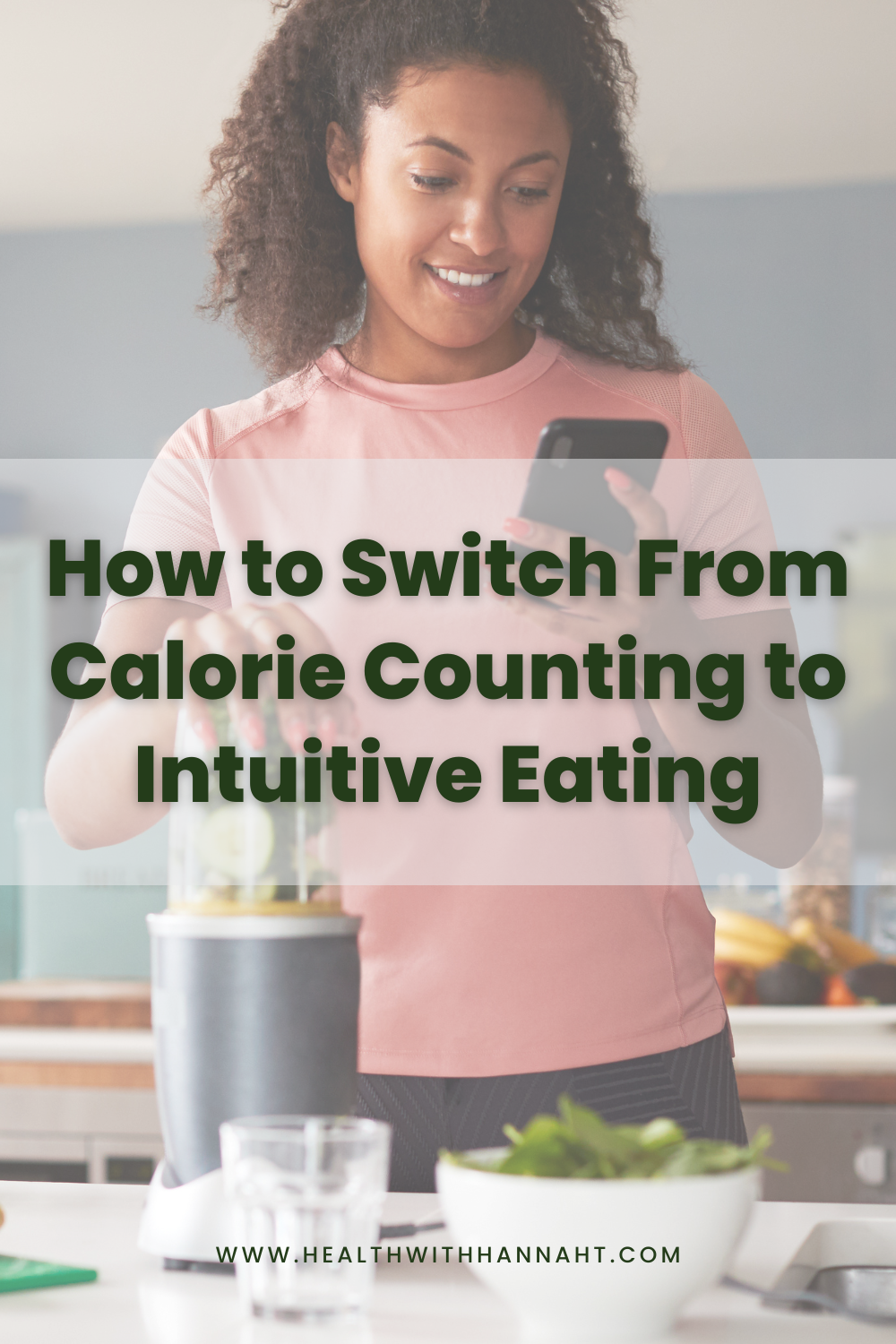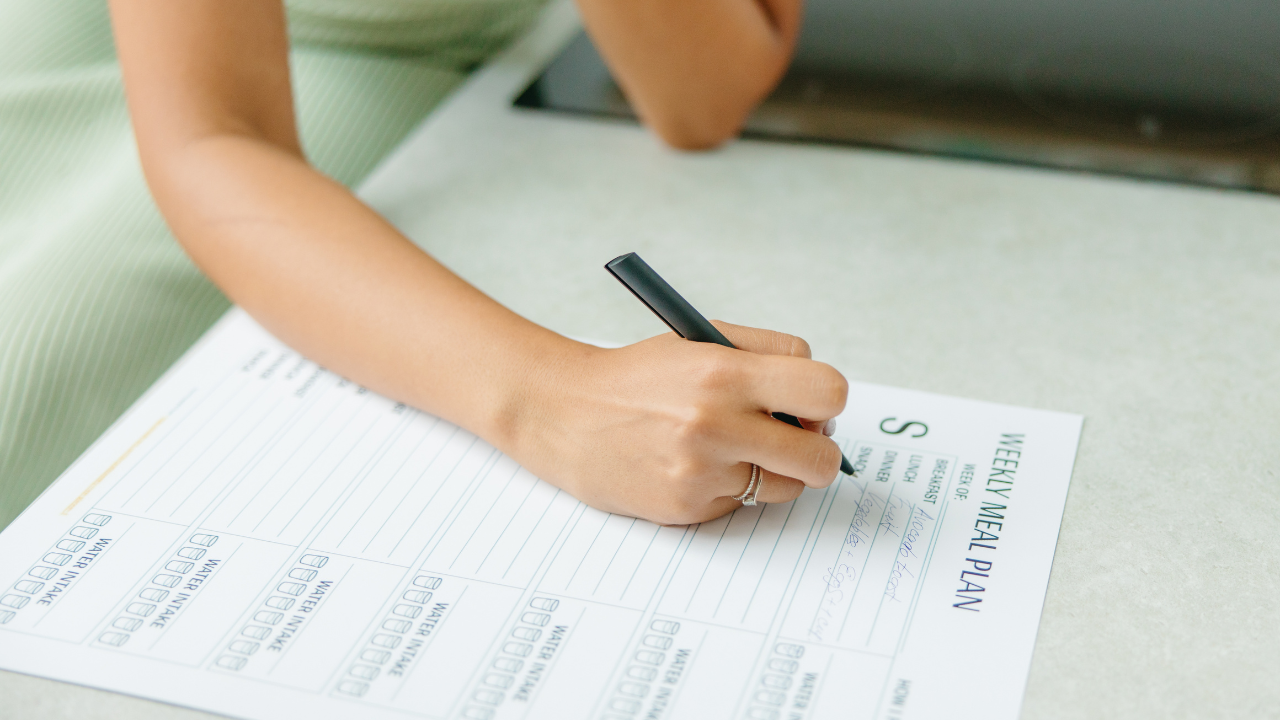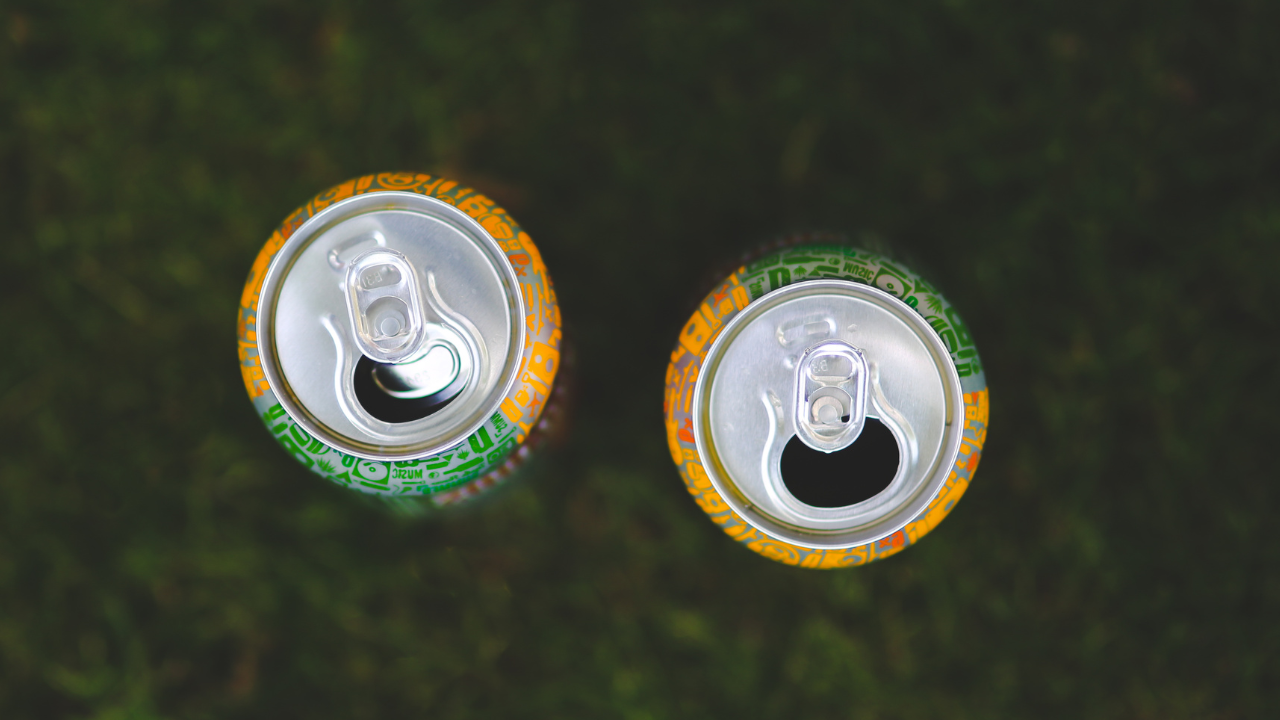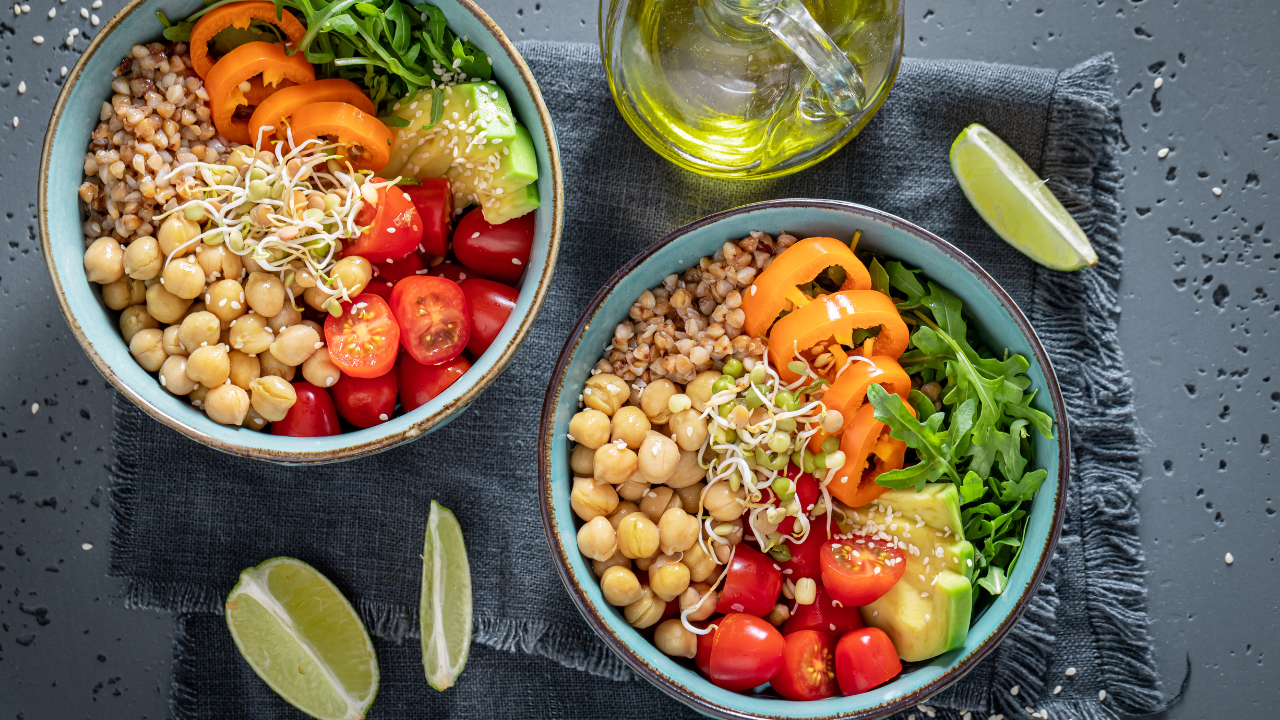How to Switch from Calorie Counting to Intuitive Eating
When you have been dieting for months, years, or even decades, it can be very difficult to trust your body to allow you to eat intuitively. It takes practice to tune back in to your hunger and satisfaction cues and say no to diet culture. How do you actually make the switch from tracking everything to eating without rules?
If you’re new here, hello and welcome! My name is Hannah and I am a non-diet dietitian here to help you improve your relationship with your food and finally find food freedom.
In this post we will cover:
What is calorie counting?
Why you shouldn’t count calories
How to stop counting calories
What is calorie counting?
Calorie counting is a method of monitoring your food intake by estimating how many calories (units of energy) that you eat in a day. Calorie counting is typically done by those pursing intentional weight loss or in any other way trying to modify their body composition (gain muscle, lose fat, etc.).
Calorie counting is a normalized practice in our society. But there are harms that may accompany this practice.
Why you shouldn’t count calories
@dietitianhannah Replying to @okay0834 1000 calories is not enough calories for an adult. #dietitianhannah #dietitiansoftiktok #dietitiantips #caloriedeficit #caloriecounting #setpointweight #setpointtheory #antidietdietitian #nondietdietitian #dietculture #1200calories ♬ original sound - Dietitian Hannah
If you are someone who enjoys calorie counting or tracking macros, that is of course your call. Some people find it helpful to keep track of their food intake and I am not here to persuade you to change.
However, calorie counting is not a good fit for everybody and can easily do more harm than good. There are a few risks that may come along with tracking your food intake.
Calorie counting can worsen your relationship with food
For some people, tracking calories and macros can be a slippery slope into disordered eating behaviors. If you find that you cannot go a day or even a meal without meticulously tracking, it may be time to self-reflect on what the practice is doing to your relationship with food and body.
It can trigger purging and overexercising
Most people who count calories are trying their hardest to stay below a certain calorie goal. When they incidentally eat above their daily target, what are they do to?
Some dieters resort to purging (via induced vomiting, laxative use, or overexercising) in attempts to “undo” the extra calories that were consumed. This is a form of disordered eating. You never need to earn your food or compensate for eating “too much”. Your body is smart and can handle more calories than an app tells you it can.
Calorie counting is not practical for real life
Calorie counting only teaches you how many calories are in the foods that you eat. But food is so much more than just calories.
Many calorie counters express frustration and confusion when they eat foods or meals that don’t have a calorie count. This might mean that they avoid eating many foods that they enjoy simply because they can’t input the data into the calorie tracking app. Or that they won’t go out to eat with their friends because they don’t have enough calories left or because the restaurant does not post their calorie information.
I also want to bring up that the calories listed on foods are just an estimation. In fact, certain nutrients on nutrition facts labels are allowed to be rounded up or down based on rules set by the FDA.
Also, the way that your body utilizes the nutrients in food is unique to you and your microbiome. The way that your body and my body choose to digest and absorb a cheeseburger will look different from each other. This process also depends on what other foods you are eating, as some nutrients actually compete for absorption. There are also certain nutrients that your body can only digest so much of at a certain time.
In other words, it is all just an estimate. The rigidity of calorie counting is not applicable to how we eat in real life.
Counting calories leads to you ignoring your body’s needs
Have you ever found yourself feeling hungry at the end of the day but your food tracking app says you are out of calories until tomorrow? What do you do? Listen to your body or listen to the app?
For those who do not trust their body’s cues, they may rely on the app to tell them when and what they should be eating. This will not be sustainable in the long term. An app does not know what your body needs. Hunger levels, cravings, and calorie needs change every single day. Our bodies have methods of maintaining this for us and letting us know what they need if we can learn how to tune in to what it is telling us.
It will likely lead to weight regain
If you are using calorie counting to lose weight, this likely will not be a sustainable approach. Maybe you are thinking “I will count calories for now and then eat more intuitively once I lose weight”. Unfortunately, this plan often does not work out.
Many people who count calories are in the trenches of quick weight loss, resulting in eating too few calories. Your body does not like being in a calorie deficit. In fact, there are many ways that it tries to compensate and keep you safe while you are undereating.
Slowed digestion
Increased cravings
Slowed heart rate
Hair loss
Stopping your period
Breaking down muscle and bone tissue
Brain fog and fatigue
When in a calorie deficit, your metabolism will slow down to accommodate less energy coming in. You could eat less and less to stay in a calorie deficit, but you can truly only “eat less” for so long. Eventually you will end up eating more, which will likely result in (much needed!!) weight regain.
When dieting (yes, calorie counting is a diet), your hormones also shift to encourage you to eat more. This is why you may feel hungrier than normal or like you can’t seem to get full. Your body is trying to get you to eat more! So when you eventually “cave” and regain weight, it is not because you lack willpower. It is because your body was trying to keep you safe.
How to stop counting calories
Delete your calorie counting app
This may seem obvious, but the first step to stop counting calories is to delete the tracking app. If it is not on your phone, you can’t use it! If you use a written journal to track your calories, throw the journal away.
Clean up your social media
I remember when I was in my calorie counting era, I was following so many weight loss and calorie-focused accounts on Instagram. These accounts were notorious for shaming high-calorie foods and provided tips on how to eat as few calories as possible. You know the type.
Following these accounts will make it even more difficult to ditch the calorie tracker. I recommend following accounts that focus on a more positive relationship with food. Check out this post for more tips on doing a social media detox.
Meal plan (with flexibility)
When making the switch from counting calories and macros to intuitive eating, it will be helpful to have a plan instead of just jumping into the deep end. After spending years depending on food rules, being able to truly enjoy all foods can feel very overwhelming.
Meal planning can be a very helpful way to make you feel like you are in the driver’s seat. Pick out a few meals and snacks each week that you would like to have before you go to the grocery store. If you find that there is a particular meal that you have a hard time coming up with ideas for, focus on that meal, search for recipes (ones without calorie counts), and write down what you plan to cook on a sheet of paper or a white board.
When meal planning as an intuitive eater, it is important to remember to be flexible! Your friends want to have an impromptu girls’ night out on Thursday but you already had a chili recipe planned? That’s okay! You can save that chili for the next evening or freeze the necessary ingredients for a future week’s meal plan. Having a balanced approach to health also means enjoying food with friends and family.
Trying to decide what meals to make? Ask yourself what sounds good. Seriously, what do you want to eat? Try to make food choices based on how satisfying they will be rather than the calorie count. You can finally enjoy foods without stressing about all those numbers!
Enjoy new and fun foods
I know that you may feel more in control when only eating your “safe” foods that are calorie- or macro-friendly, but the only way to truly become an intuitive eater is to make peace with all foods.
Add that creamer to your coffee. Slather some peanut butter on your toast. It may feel scary at first, but remember that there are not any foods that are inherently unhealthy, fattening, etc. You truly can and should enjoy all foods.
You may find that you eat past fullness and enjoy these “fun foods” beyond what feels comfortable. This is normal and expected if you have been dieting for a long time. The more you continue to expose yourself to these foods, the more normalized they will become.
Note: if you are recovering from an eating disorder, follow the plan as instructed by your care team.
Eat every 3-4 hours
An integral part of intuitive eating is learning to trust your body’s hunger and satiety cues and this can be challenging when you have been ignoring them in the spirit of intentional weight loss.
@dietitianhannah Replying to @daisysong85 You may not be in a calorie deficit, even if you are tracking. And that’s okay. While a calorie deficit is the only way for weight loss to occur, tracking everything you eat likely won’t be a sustainable habit #dietitianhannah #dietitiansoftiktok #antidietdietitian #nondietdietitian #dietculture #dietitiansontiktok #caloriecounting #caloriedeficit #caloriedeficitdiet #ditchthediet #intuitiveeating ♬ original sound - Dietitian Hannah
Most people need to eat every 3-4 hours in order to balance their blood sugars and not get excessively hungry. However, this is not a rule! Intuitive eating does not allow for food rules. If you feel hungry before 3 hours is up, then eat something! Our bodies are not machines and you may feel hungry at different times on different days.
Try to always include protein, healthy fat, and/or fiber at each meal and snack that you eat in order to help you balance blood sugars and stay full for longer. I call this The Blueprint for satisfying meals and I teach all about it in The Nutrition Reboot Membership.
Practice makes progress
Learning intuitive eating is not usually a seamless transition. Many of us have spent so much of our lives depending on diets instead of trusting out body and it takes time to rebuild that trust and listen to our hunger and fullness cues again.
Try not to get discouraged if intrusive thoughts of going back to diets end up in your psyche. Working with a dietitian and/or a therapist can be a great way to help overcome these thoughts.
Bottom line
As a non-diet dietitian, I typically do not recommend calorie counting because it comes with many risks. Making the switch from counting calories and macros to intuitive eating takes time, practice, and it is a lifelong journey. Allowing all foods in your life, listening to your hunger and satisfaction cues, and ditching the diets is the best thing you can do for your physical and mental health.
Looking for more help ditching MyFitnessPal? We’d love to support you inside The Nutrition Reboot Membership.

































